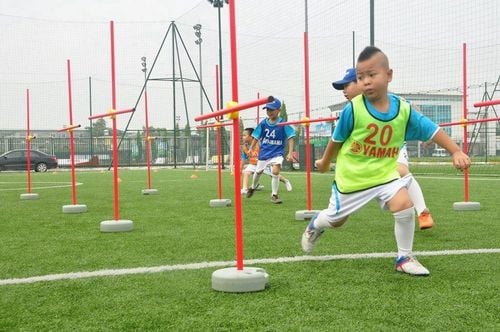Daytime sleepiness makes you lack concentration at work or study. This causes big issues not only to work productivity but also academic results. How to reduce daytime sleepiness is something that you are concerned about, try the following 12 ways that can help you improve.
1. When you feel sleepy get up and walk around
In well-known research, it was said that you will be more energetic by walking briskly for about 10 minutes. Walking for about 10 minutes helps to increase energy within 2 hours. That's because when walking, the pumping of oxygen through the brain and muscles is strengthened.
If you often have to sit at work, get up regularly to walk for short periods. That will make you feel more alert and refreshed and also help limit joint pain.
2. Take a short nap to get rid of your drowsiness
If you feel too sleepy during the day, you can take a short nap. However, remember that this nap should not exceed 1 hour and should not be too close to your bedtime.
The ideal time for a nap is no more than 1 hour, with the best length being from 5 to 25 minutes. It's also recommended to take a nap about six or seven hours before your regular bedtime. If work commitments prevent you from napping, you can rest quietly with your eyes closed for 10 minutes or longer, which can also help you feel more alert.

3. Get enough sleep at night
This is a good tip to help you prevent daytime sleepiness. Adolescents need an average of 7 to 9 hours per night. If they do not get enough sleep or have restless sleep, it will cause you to lack sleep, and a clear sign of lack of sleep is feeling sleepy during the day.
Therefore, you should maintain the habit of getting enough sleep at night to have a more productive and efficient day.
4. Stay away from the bed during the day
The bed should typically be reserved for sleeping or intimacy with your spouse. You should avoid reading, watching TV, playing video games, using a laptop, or working in bed, as these activities can make you feel drowsy.
Moreover, refrain from engaging in overly stimulating activities in bed because it can create a sense of excitement that may lead to insomnia.
5. Set a fixed wake-up time
People who struggle with sleepiness are often advised to go to bed and wake up at the same time every day, even on weekends. You should maintain this routine for a few weeks to a few months to help regulate your biological clock.
6. Go to bed earlier
Another way to set up a fixed wake-up schedule is to try going to bed 15 minutes earlier each night within four nights. Once you've reached your desired bedtime, stick to it. Adjusting your sleep schedule in this way is usually more effective than suddenly trying to go to bed an hour earlier.
7. Set healthy and appropriate meal times
You should have breakfast and lunch at fixed times with enough nutrition. Eating on schedule and ensuring proper nutrition helps prevent energy deficiencies during the day, which can lead to daytime drowsiness. Moreover, plan to finish your meals two to three hours before bedtime to avoid difficulties with sleep and discomfort in your stomach.
8. Doing exercises
Exercising regularly for about 30 minutes a day at least 5 days a week offers numerous benefits for sleep. Regular exercise helps you fall asleep more easily and enjoy better quality sleep.
Exercise also provides more energy during the day and helps you feel more alert.
Additionally, it is recommended to exercise outdoors during the day. Exposure to sunlight enhances the interaction between your biological clock and natural light, which helps regulate your sleep patterns and improves the quality of your nighttime sleep.

9. Rearrange work
If you find yourself unable to get seven or eight hours of sleep in a day, it's essential to reorganize your tasks more effectively. Strive to balance your time between rest and work by eliminating tasks that are not truly important. Getting enough sleep at night will improve your work efficiency and help protect your health.
10. Don’t force yourself to stay awake in bed
If it’s bedtime but you find it hard to fall asleep, don’t force yourself to lie awake in bed. This will only make it harder to sleep and increase the feeling of insomnia. Instead, get up and do something like reading a book or writing in a journal until you feel sleepy, then return to bed. Writing in a journal can help you relax and fall asleep more easily.
11. Create a habit of relaxing before going to bed
A pre-sleep relaxation routine can help you disconnect from the events of the day, particularly those that are overly stimulating or stressful, which may make it difficult to fall asleep. Practices like meditation, soaking in a warm bath, listening to soothing music, or reading a book can form a calming bedtime routine and improve your sleep quality.
Drinking a bit of herbal tea or warm milk can also help you feel more relaxed. However, if drinking these causes you to wake up during the night to use the bathroom, it’s better to avoid them.
12. Avoid drinking alcohol before bed
Many people believe that alcohol helps them sleep better, but in reality, it disrupts deep sleep, which is essential for feeling fully rested.
To achieve a good night's sleep and deeper rest, it’s best to limit alcohol consumption before bedtime.
Daytime drowsiness can have various causes, with the most common being insufficient nighttime sleep and a lack of energy. Addressing these factors can help reduce daytime sleepiness. However, if you’ve already tried these measures and still feel sleepy during the day, it may indicate a sleep disorder that requires treatment.In such cases, it’s important to consult a sleep specialist to determine whether your condition is a medical issue and to develop a treatment plan tailored to your needs.
Please dial HOTLINE for more information or register for an appointment HERE. Download MyVinmec app to make appointments faster and to manage your bookings easily.













